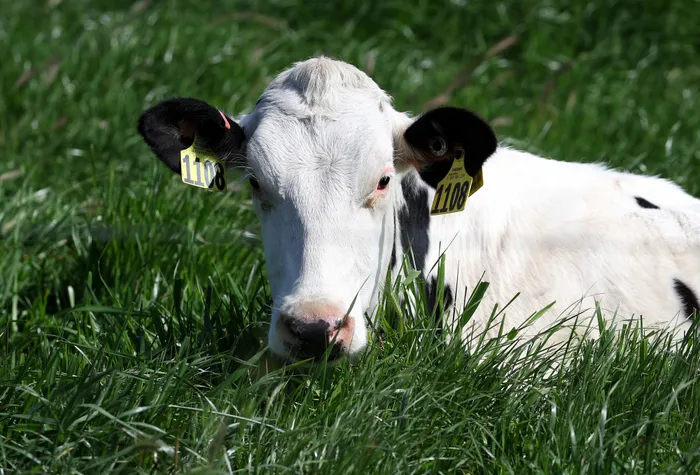
Agricultural Farming associations are concerned about the impact of Foot and Mouth Disease (FMD) outbreak on the red meat industry.
Image: Picture: Justin Sullivan Getty Images via AFP
Farming associations on Monday expressed concern about the impact of Foot and Mouth disease (FMD) outbreak on the red meat export industry.
This comes as the People’s Republic of China has already suspended imports of cloven hoofed animals and related products following Foot and Mouth Disease outbreaks in KwaZulu-Natal, Mpumalanga and Gauteng.
The Department of Agriculture on Saturday confirmed an outbreak of FMD in the province of Mpumalanga and new cases in KwaZulu-Natal.
Wandile Sihlobo, chief economist at the Agricultural Business Chamber of South Africa (Agbiz), on Monday said that the livestock and poultry industries accounted for nearly half of South Africa’s agricultural economy.
“Because of this large size, we worry about the sector when these industries encounter challenges. One of the persistent challenges of the South African livestock industry is the prevalence of animal diseases,” Sihlobo said.
“We experienced this challenge most severely from 2022 through 2023 when the cattle industry was affected by foot and mouth disease, the poultry industry by avian influenza, and the pig industry by African swine fever.
“Whenever we have such cases, trading partners typically respond by protecting their borders against potential disease spread. Thus, China has temporarily suspended the imports of beef and cattle products from South Africa. We can assume that this is the start of many temporary pauses on imports that we will see from our trading partners.”
Sihlobo added that this will reverse the progress observed in South Africa’s beef export recovery.
“For example, in 2024, South Africa’s cumulative beef exports increased by 30% from 2023, reaching 38 657 tons. About 57% of this was fresh beef, and 43% was frozen beef. The key markets include China, Egypt, UAE, Jordan, Angola, Mozambique, Kuwait, Qatar, Saudi Arabia, and Mauritius,” he said.
Red Meat Industry Services (RMIS) said that they were concerned following China's suspension of imports of all beef and related products from South Africa.
RMIS said the decision by a key trade partner highlighted the severe impact of FMD outbreaks and subsequent trade suspensions on the red meat industry.
RMIS CEO Dewald Olivier said that this development was a stark reminder of the fragility of the country's export markets when faced with biosecurity threats.
“The ripple effect of this ban is far-reaching, threatening the livelihoods of producers, feedlots, abattoirs, exporters, and many others across the value chain, while compounding the challenges of biosecurity and economic uncertainty,” Olivier said.
“While we respect China’s biosecurity protocols, the economic impact on South African farmers and the entire red meat value chain is severe and disheartening. The setback is especially unfortunate considering the landmark Memorandum of Understanding (MoU) signed between South Africa and China in September 2024, which aimed to deepen bilateral trade cooperation.”
Olivier added that this MoU, which was celebrated as a key step in strengthening economic ties, included a specific agreement focused on Foot and Mouth Disease prevention and control.
“The MoU aimed to broaden South Africa’s export basket with diversified, value-added products to China, reinforcing China’s role as South Africa’s largest trading partner and opening new avenues for trade and investment,” he said.
“In 2024, South Africa’s beef exports experienced significant growth, increasing by 30% from the previous year to reach 38,657 tonnes. China emerged as a key market, accounting for approximately 14% of South Africa’s frozen beef exports.”
Olivier said that RMIS acknowledged and appreciated the swift escalation of control measures by the Department of Agriculture, including rapid response, containment, and intensified biosecurity efforts.
Visit: www.businessreport.co.za